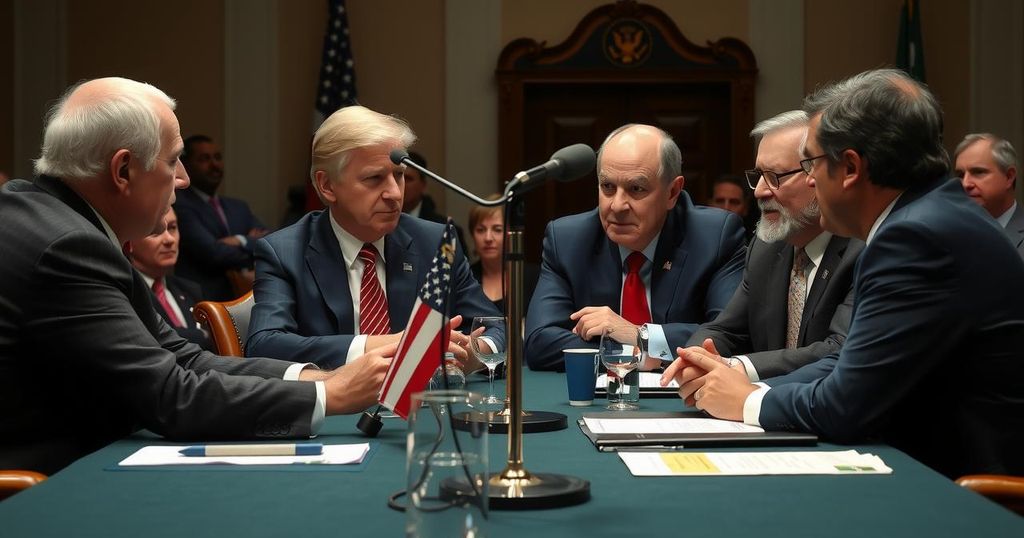Biden’s Environmental Legacy Versus Trump’s Pragmatic Policies

President Biden’s push for an oil drilling ban aims to establish his environmental legacy ahead of Trump’s presidency. This decision could isolate the U.S. regarding global climate initiatives. The article contrasts Biden’s commitment to Ukraine against Trump’s pragmatic reassessment of U.S. foreign aid, particularly concerning NATO and Israel, amid potential conflicts with Republican lawmakers.
Outgoing President Joe Biden is advocating for a ban on oil drilling in the United States’ coastal waters, a decision viewed as an effort to solidify his environmental legacy in pursuit of net-zero carbon emissions by 2050. This move, occurring shortly before Donald Trump assumes the presidency, is significant given that the ban cannot be easily reversed by Trump, a skeptic of climate change initiatives. As the world collectively addresses climate change, the United States, being the largest emitter of greenhouse gases, risks isolation if it fails to engage constructively with global efforts.
In foreign policy, Biden has staunchly supported Ukraine in its conflict with Russia, whereas Trump may reassess the level of military and financial aid provided to support Kiev. Trump’s pragmatic approach raises questions regarding his ability to utilize his relationship with Russian President Vladimir Putin to facilitate peace in the protracted war. He has distinct views on NATO, advocating for increased military spending from European allies, a demand that may encounter significant resistance.
Despite Trump’s inclination towards pro-business policies, he is unlikely to shift the longstanding U.S. support for Israel. Biden consistently reaffirmed military aid to Israel while pressing for humanitarian measures amidst escalating violence against civilians in Gaza. Conversely, Trump is expected to assert less pressure on Israel regarding ceasefire negotiations while maintaining a traditional lack of engagement in conflict resolutions across various global hotspots, from Ukraine to Taiwan.
On economic matters, Trump envisions imposing tariffs on U.S. trade partners as his primary tool of engagement, rather than adopting a nuanced diplomatic stance necessary for addressing broader international issues. The Republican dominance in Congress presents additional challenges for Trump, as Republican lawmakers may resist his more simplistic policies, necessitating complex negotiations within his party.
The article discusses the implications of Joe Biden’s environmental policies, juxtaposing them with Donald Trump’s anticipated pragmatic approach once he assumes the presidency. It highlights Biden’s initiatives aimed at combating climate change, particularly through a proposed ban on oil drilling. Additionally, it addresses the tensions surrounding U.S. foreign relations, particularly with respect to Ukraine and Israel, and considers how Trump’s positions may evolve in response to domestic and international policy expectations from Congress and global partners.
Overall, Biden’s tenure has focused on advancing climate initiatives and robust support for allies such as Ukraine, while Trump’s incoming administration may herald a shift towards a more pragmatic, albeit less ideologically consistent, foreign policy. The challenges Trump faces from within his party and the international community may complicate his ability to implement the policies he desires. The forthcoming political landscape suggests a period of negotiation and potential change in U.S. domestic and foreign policy priorities.
Original Source: www.gulftoday.ae








